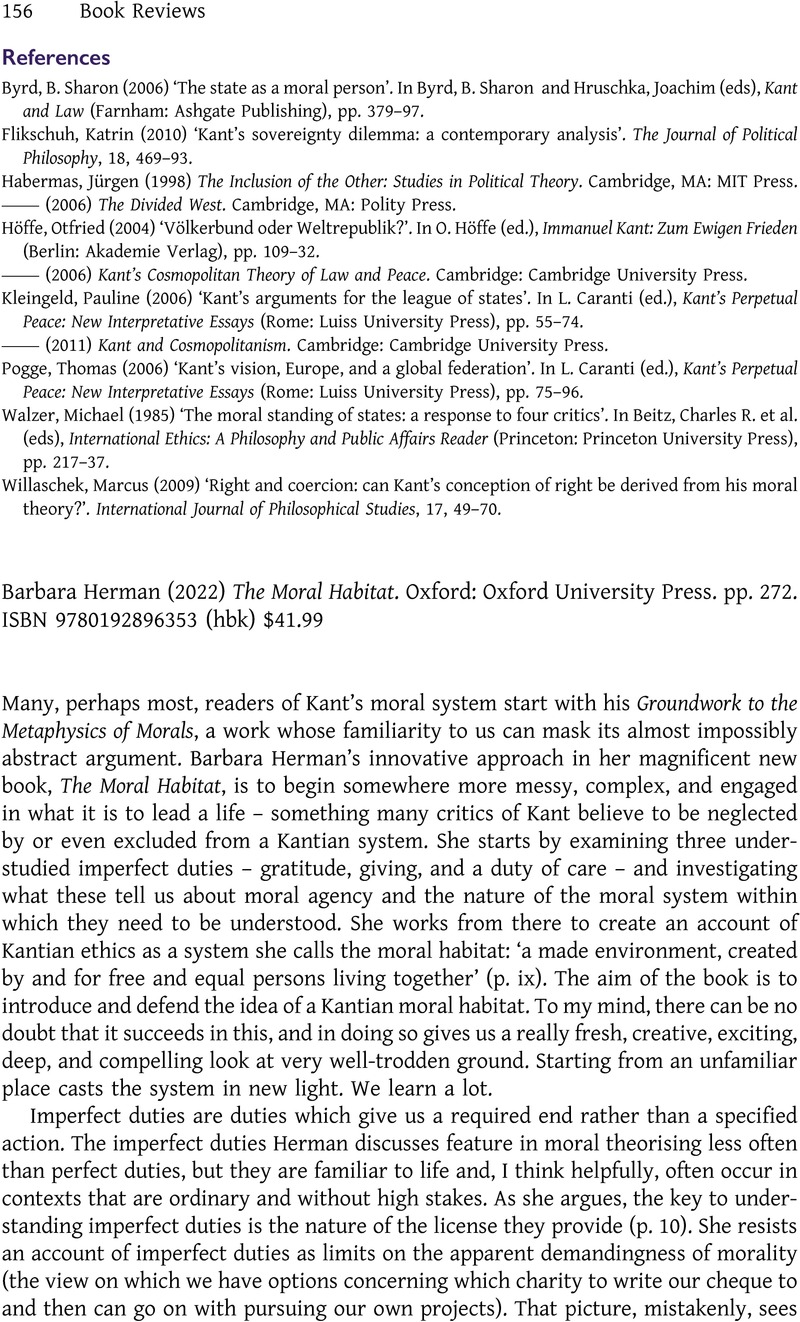No CrossRef data available.
Article contents
Barbara Herman(2022) The Moral Habitat. Oxford: Oxford University Press. pp. 272. ISBN 9780192896353 (hbk) $41.99
Review products
Barbara Herman(2022) The Moral Habitat. Oxford: Oxford University Press. pp. 272. ISBN 9780192896353 (hbk) $41.99
Published online by Cambridge University Press: 08 January 2024
Abstract
An abstract is not available for this content so a preview has been provided. Please use the Get access link above for information on how to access this content.

- Type
- Review
- Information
- Copyright
- © The Author(s), 2024. Published by Cambridge University Press on behalf of Kantian Review
References
Allais, Lucy (2018) ‘Evil and practical reason’. In Watkins, Eric (ed.), Kant on Persons and Agency (Cambridge: Cambridge University Press), pp. 83–101.Google Scholar
Allais, Lucy (2021) ‘Deceptive unity and productive disunity: Kant’s account of situated moral selves’. In Lyssy, A. and Yeomans, C. (eds), Kant on Morality, Humanity, and Legality: Practical Dimensions of Normativity (London: Palgrave Macmillan), pp. 45–66.Google Scholar
Darwall, Stephen (2006) The Second Person Standpoint. Cambridge, Massachusetts and London: Harvard University Press.Google Scholar
Macnamara, Coleen (2013) ‘“Screw You!” & “Thank You”’. Philosophical Studies, 165, 893–914.CrossRefGoogle Scholar
McGeer, Victoria (2013) ‘Civilizing blame’. In Coates, D. J. and Tognazzini, N. A. (eds) Blame: Its Nature and Norms (New York: Oxford University Press), pp. 162–88.Google Scholar
Smith, Angela (2013) ‘Moral blame and moral protest’. In Coates, D. J. and Tognazzini, N. A. (eds) Blame: Its Nature and Norms (New York: Oxford University Press), pp. 27–48.Google Scholar
Walker, Margaret Urban (2006) Moral Repair: Reconstructing Moral Relations After Wrongdoing. Cambridge: Cambridge University Press.CrossRefGoogle Scholar



